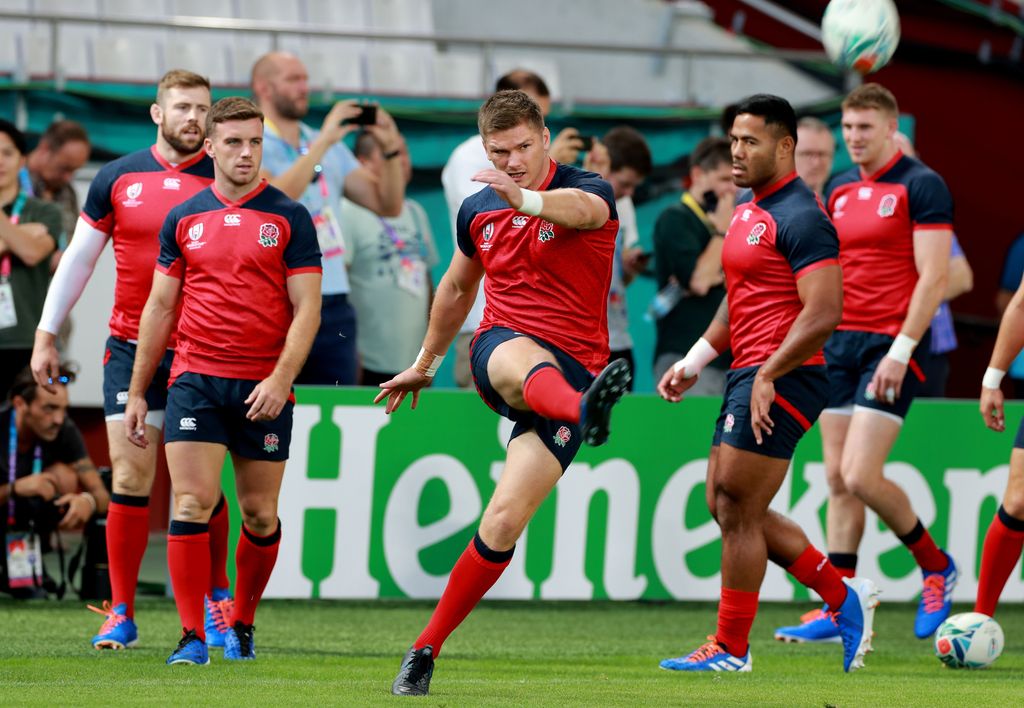TOKYO, 18 Oct - England breezed through their pool at Rugby World Cup 2019. They beat USA, Tonga and Argentina by a combined score of 119 to 20, then avoided a table-topping clash with France after Typhoon Hagibis struck.
When they face Australia they will play a team who have endured four tough pool-stage matches (won three and lost one). So are England, who finished early in the pool stages with a comfortable victory over Argentina, below, coming into Saturday's quarter-final undercooked or just right?
George Ford is not in the starting line-up but he has inspired the English backline so far this tournament. He is top with Semi Radradra at RWC 2019 when try assists and tries are combined. If he has not been creating them he has been scoring them. Ford is not a powerful carrier nor a fleet-footed hot-stepper. He does, however, possess remarkable awareness, as he showed against Argentina and USA.
The responsibility for the role assumed by Ford now falls to Owen Farrell, pictured, who takes the starting place he held in this year's Six Nations. Ford also made four appearances in that series, all off the bench, where he is also named for the quarter-final.
England will need Farrell to be at Ford's game-breaking best against Australia. No team kicks less than Australia and, interestingly, no team kicks more than England. There is a good chance that England will be denied possession for large periods of their quarter-final.
That will not be a problem as long as they take the chances when they come. Farrell will play a huge part in ensuring England are efficient in their attack when he starts. Ford will be expected to keep that going when he comes on in the second half.
Against a team like Australia, who are determined not to kick the ball away, England will have to generate their own possession. One way is turnovers. Second-row Maro Itoje leads the World Cup with seven turnovers, having played only two games. England need him to continue that form.
His strength allows him to steal the ball right out of the hands of Marcos Kremer in the clip below - Kenki Fukuoka style. We know how dangerous turning the ball over is for the attack. Itoje can be a source of possession for England. The Itoje versus David Pocock battle might decide the quarter-final.
Itoje's ability to rip the ball will have been noticed by Australia and is likely to change their behaviour. Players like to carry with the ball in two hands to make passing easier. It keeps the defence alert, whether the carrier passes or not. When Australia's ball-carriers look up and see Itoje, it will change. They will need to cover up and forget the pass option to make sure they can keep hold of the ball at all.
It is worth stressing how infrequently Australia kick. They have averaged just 12.8 kicks per game; England lead the way with 29 kicks per game.
When teams do not kick possession away they leave themselves open to turnovers. If a team are stuck in their own half and insistent on not kicking possession away, then they had better make sure they keep hold of the ball. If Itoje can snap up the ball then Farrell or Ford have the awareness to spot the weakness and attack it.
RNS sl/sdg/pp/ajr
